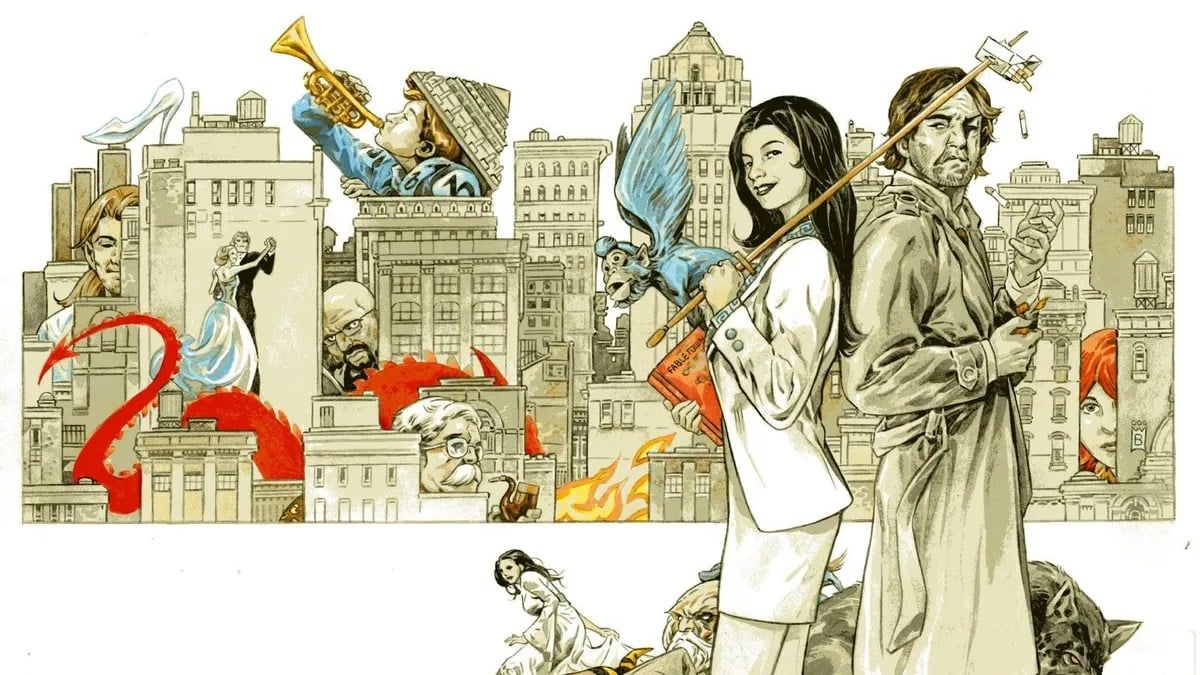
A couple of weeks ago, Fables creator Bill Willingham made a big production and issued a big press release, stating that “the comic book property called Fables, including all related Fables spin-offs and characters, is now in the public domain.”
If true, this would be a huge boon to creatives who are fans of the series, allowing them to make their own media using those beloved characters and stories. However, the waters are a bit murkier than Willingham’s cut-and-dried lede.
Even Willingham described the limitations of what was being “given away:”
“I still can’t publish Fables comics through anyone but them. I still can’t authorize a Fables movie through anyone but them. Nor can I license Fables toys nor lunchboxes, nor anything else. And they still have to pay me for the books they publish. […]
However, you, the new 100% owner of Fables never signed such agreements. For better or worse, DC and I are still locked together in this unhappy marriage, perhaps for all time.
But you aren’t.
If I understand the law correctly (and be advised that copyright law is a mess; purposely vague and murky, and no two lawyers – not even those specializing in copyright and trademark law – agree on anything), you have the rights to make your Fables movies, and cartoons, and publish your Fables books, and manufacture your Fables toys, and do anything you want with your property, because it’s your property.”
And, of course, DC has lawyers of their own. As reported by Popverse, DC responded to Willingham’s statement almost immediately with a statement of their own, saying:
“The Fables comic books and graphic novels published by DC, and the storylines, characters, and elements therein, are owned by DC and protected under the copyright laws of the United States and throughout the world in accordance with applicable law and are not in the public domain. DC reserves all rights and will take such action as DC deems necessary or appropriate to protect its intellectual property rights.”
So, according to DC, Fables is definitively not in the public domain. Can both parties be right?
Willingham “clarified” things on X (formerly Twitter) a bit. Sort of. Maybe:
Which I’d imagine is what people would want to do anyway. I’m sure there are some hungry bootleggers who only want to digitally reproduce PDFs of Fables books and make money off of them, or whatever. But for the most part, the characters and stories being in the public domain is primarily important to people who’d want to make their own work set in the world of Fables.
Of course, the idea of these particular characters being “owned” by DC is kind of bananas anyway, considering that they’re mostly fairy tale characters that are already in the public domain. Like, anyone can already write a story using Snow White if they want. You might not be able to call it a “Fables” story. But would you need to?
While Willingham and TMS have a contentious history over his iffy politics (check out this 2015 article by former TMS writer Carolyn Cox and this Bleeding Cool article about a bookstore responding to the article), where we agree is that copyright law is purposely murky as hell. What was originally designed to protect artists and allow their families to benefit financially from their work through their estates after their deaths has since bloated to protect businesses indefinitely, causing all sorts of confusion and chaos. I understand Willingham’s impulse to simply give Fables away rather than allow DC to treat him unfairly.
Former TMS writer Princess Weekes wrote a piece called “What is the Line Between Author and Character?” where she mentioned seeing Willingham’s politics all over Fables once she learned what his politics were, and that it affected her reading of it. I hope that artists in all mediums who are Fables fans explore the issue more thoroughly and find a way to tell their own stories in that world, if only to create Fables stories that are distanced from its creator and his problematic politics.
Or they could, you know, just write original stories using Snow White and The Big, Bad Wolf, because they already can.
(featured image: DC Comics/Vertigo)
This piece was written during the 2023 WGA and SAG-AFTRA strikes. Without the labor of the writers and actors currently on strike, the work being covered here wouldn’t exist.
Have a tip we should know? [email protected]

